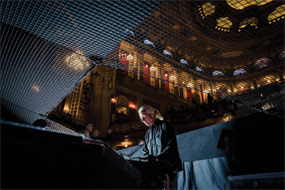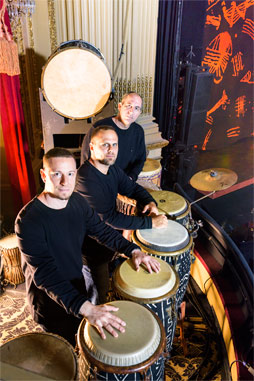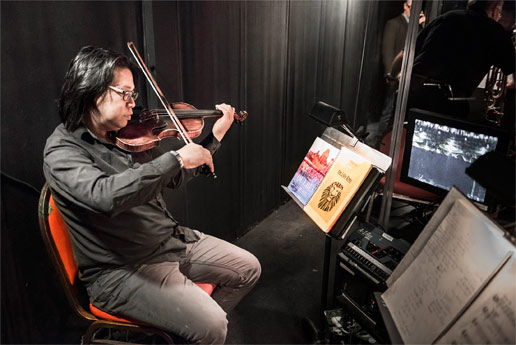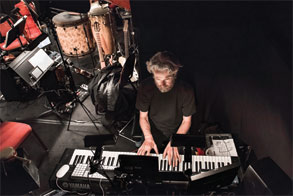 by Tom Mendel, Theatre Musicians Association President Emeritus and Member of AFM Local 10-208 (Chicago, IL)
by Tom Mendel, Theatre Musicians Association President Emeritus and Member of AFM Local 10-208 (Chicago, IL)
Our 21st Annual TMA Conference was held at the Loews Madison Hotel in Washington, DC, August 22-23. Lee Lachman of Local 161-710 (Washington, DC) (on behalf of TMA Washington, DC, Chapter President Paul Schultz), Local 161-710 President Ed Malaga, and myself welcomed the attendees.
AFM President Ray Hair spoke about the 100th AFM Convention, his history bargaining and negotiating in Dallas and Ft. Worth, Pamphlet B, and fairness for subs and alternates in orchestras.
In my president’s report, I stated the theme of this conference: the Future of TMA. Two hours of the afternoon session were devoted to a round-table discussion of this topic. I reported on the Pamphlet B negotiations in which TMA has a very active role; the formation a Keyboard Subbing Committee because of what we consider unfavorable practices involving keyboard subs; the formation of the TMA Officers & Members Video Training Committee to produce training videos for TMA officers and members on select subjects such as running a meeting, use of social media, and more. These will be great learning tools located in our TMA Officers Toolbox. I gave a PowerPoint demonstration of a new video on membership recruitment and retention.
I read TMA resolutions of recognition to Carla Lehmeier-Tatum of Local 618 (Albuquerque, NM) for nine years of service as ROPA president and Bruce Ridge of Local 500 (Raleigh, NC) for 10 years of service as ICSOM chair. OCSM President Robert Fraser of Local 247 (Victoria, BC) and Ridge gave eloquent player conference reports. Ridge read an ICSOM resolution recognizing me for my years of service with TMA. I read a report from new ROPA President Mike Smith of Local 30-73 (Minneapolis-St. Paul, MN). Local 161-710 treated conference attendees to a delicious lunch.
AFM Touring/Theatre/Booking and Immigration Director Michael Manley gave a report on Pamphlet B negotiations. He compared data from current “full” Pamphlet B tours and those touring on the SET Agreement. He also described the work his office truly does and the people working in it.
TMA Chapter, Broadway, Membership-at-Large, and Traveler Director reports followed. Legislative Chair Walter Usiatynski of Local 802 (New York City) and Chapter and Membership Recruitment Chair Debbie Brooks of Local 72-147 (Dallas-Ft. Worth, TX) gave standing reports. Lovie Smith-Wright of Local 65-699 (Houston, TX) and 60-471 (Pittsburgh, PA) gave the Diversity Committee report.
TMA Parliamentarian Paul Castillo of Locals 47 (Los Angeles, CA) and 353 (Long Beach, CA) introduced and moderated the Future of TMA round-table discussion, which resulted in three areas for TMA Executive Board consideration.
The second day began with the executive board report. TMA Webmaster Stephen Green of Locals 47 and 7 (Orange County, CA) gave his report. Newly elected AFM Secretary-Treasurer Jay Blumenthal gave brief introductory remarks. AFM IEB Member and Local 802 President Tino Gagliardi spoke about the new Local 802 Broadway contract. He reported that there were more than 300 musicians working on Broadway contracts.
Local 161-710 President Malaga and Executive Board Member Patrick Plunk gave a special report on organizing the Olney Theatre and its successful effort to become unionized.
Elections results were as follows: President Tony D’Amico of Locals 9-535 (Boston, MA) and 198-457 (Providence, RI); Vice President Paul Castillo; Secretary-Treasurer Mark Pinto of Locals 9-535, 198-457, and 126 (Lynn, MA); Broadway Director Jan Mullen of Local 802; Membership-at-Large Director Lovie Smith-Wright; and Travelers Director Angela Chan of Local 369 (Las Vegas, NV).
Chapter directors elected locally include: Walt Bostian (Boston) of Locals 9-535, 126, and 198-457; Heather Boehm (Chicago) of Local 10-208 (Chicago, IL); Alan Ayoub (Detroit) of Local 5 (Detroit, MI); David Philippus (Las Vegas) of Local 369; Steve Sanders (Northern California) of Local 6 (San Francisco, CA); Jeff Martin (Phoenix) of Local 586 (Phoenix, AZ); Stephen Green (Southern California); Vicky Smolik (St. Louis) of Local 2-197 (St. Louis, MO); and Paul Schultz (Washington, DC) of Local 161-710.
AFM President Ray Hair swore in all officers, chapter directors, and alternates present. Congratulations to Tony D’Amico, Paul Castillo, Mark Pinto, and the executive board on their elections. We are in great hands. TMA’s future is bright!
It has been an honor and a pleasure to serve as TMA president for the past five years. I extend a special thanks to TMA vice presidents Walter Usiatynski (2013-2016) and Michael Manley (2011-2013) and secretary-treasurers Mark Pinto (2012-present) and Local 10-208 member Leo Murphy (2011-2012) for their outstanding service to TMA. I also thank all of the past and present members of the executive board for their service. TMA is a voluntary organization. The time and effort given by our local and national representatives is greatly appreciated.


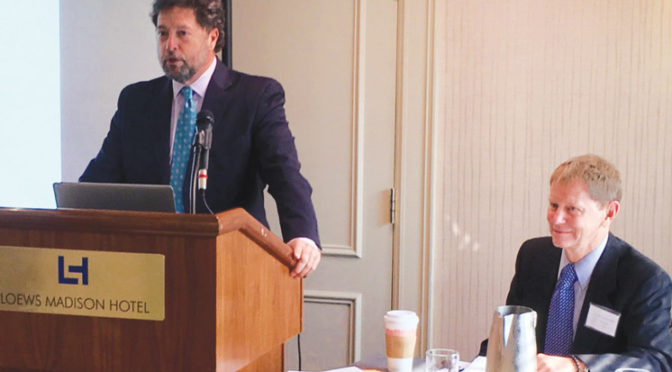
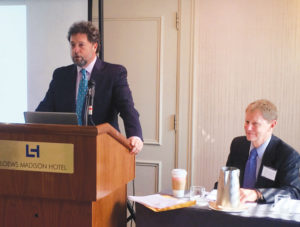
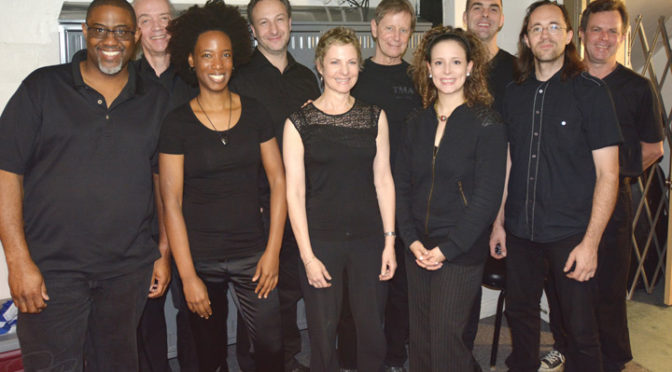
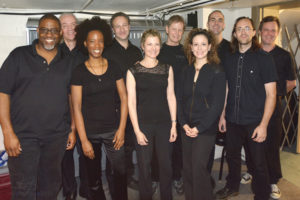
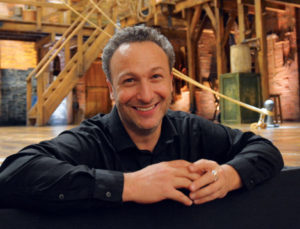
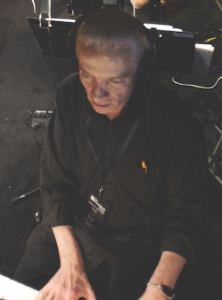
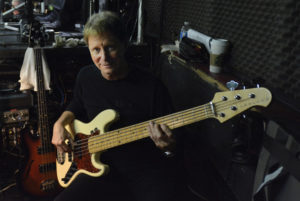
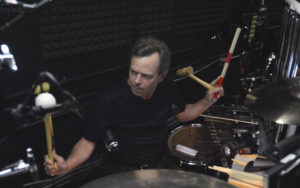
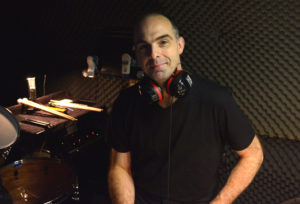
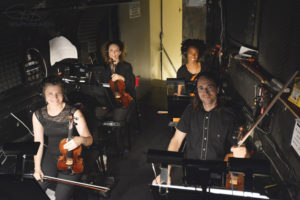
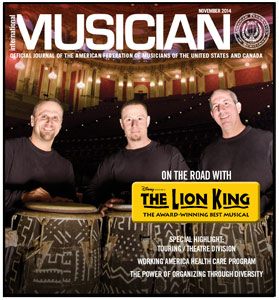
 At any given week each year, there are an average of 150 full-time AFM musicians touring throughout the US and Canada, in 20-plus musicals and three circuses. In addition to these traveling artists, touring shows provide part-time employment to hundreds of local musicians. Most productions travel with only a small core group of musicians, and they fill out the rest of the score with a “new” orchestra of local homegrown talent in each venue. Along with peer unions Actors’ Equity and The International Alliance of Theatrical Stage Employees (IATSE), the AFM has theatrical touring agreements that address short-engagement tours, which play primarily in smaller markets, as well as big budget blockbusters booked in major cities for weeks on end. Main employers—members of The Broadway League and Disney Theatricals—are signed to the AFM’s Pamphlet B Agreement, which also incorporates the Short Engagement Tour (SET) Agreement. Smaller nonsignatory producers sign single-project touring agreements, which largely mirror the AFM’s SET terms. Touring under the Pamphlet B agreement, Disney’s The Lion King is reigning king of the road musical jungle, having traveled continuously since 2002 and given more than 5,000 performances. For the most part, the 13 musicians traveling with The Lion King consider themselves fortunate to have full-time, well-paid, secure jobs in music that allow them to see the country. However, the life of a traveling musician is also wrought with unique challenges. In this article you will meet seven AFM musicians who travel with The Lion King, and learn about their lives on the road. Unlike their counterparts on the orchestral podium, conductors are covered employees in the unionized workplaces of musical theatre and circus productions. They often rise to the post through their work as pit keyboard players—and some are required to play and conduct at the same time. Their role of preparing the music for the show takes on increased importance considering the need to rehearse a different set of musicians to play complicated scores, in a limited time, every time the show changes venue. The Lion King score calls for six local musicians, in addition to the 13 who travel with the show.
At any given week each year, there are an average of 150 full-time AFM musicians touring throughout the US and Canada, in 20-plus musicals and three circuses. In addition to these traveling artists, touring shows provide part-time employment to hundreds of local musicians. Most productions travel with only a small core group of musicians, and they fill out the rest of the score with a “new” orchestra of local homegrown talent in each venue. Along with peer unions Actors’ Equity and The International Alliance of Theatrical Stage Employees (IATSE), the AFM has theatrical touring agreements that address short-engagement tours, which play primarily in smaller markets, as well as big budget blockbusters booked in major cities for weeks on end. Main employers—members of The Broadway League and Disney Theatricals—are signed to the AFM’s Pamphlet B Agreement, which also incorporates the Short Engagement Tour (SET) Agreement. Smaller nonsignatory producers sign single-project touring agreements, which largely mirror the AFM’s SET terms. Touring under the Pamphlet B agreement, Disney’s The Lion King is reigning king of the road musical jungle, having traveled continuously since 2002 and given more than 5,000 performances. For the most part, the 13 musicians traveling with The Lion King consider themselves fortunate to have full-time, well-paid, secure jobs in music that allow them to see the country. However, the life of a traveling musician is also wrought with unique challenges. In this article you will meet seven AFM musicians who travel with The Lion King, and learn about their lives on the road. Unlike their counterparts on the orchestral podium, conductors are covered employees in the unionized workplaces of musical theatre and circus productions. They often rise to the post through their work as pit keyboard players—and some are required to play and conduct at the same time. Their role of preparing the music for the show takes on increased importance considering the need to rehearse a different set of musicians to play complicated scores, in a limited time, every time the show changes venue. The Lion King score calls for six local musicians, in addition to the 13 who travel with the show.